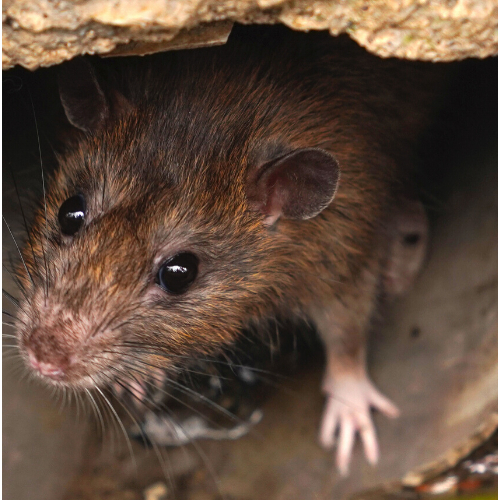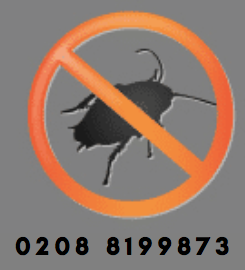Rat Control in Merton: Strategies for Effective Rat Management
Introduction: Dealing with a rat infestation can be a serious concern for homeowners and businesses. Rats can cause extensive damage to property, contaminate food, spread diseases, and pose risks to human health. Merton offers professional rat control services to effectively eliminate rats from your premises and implement preventive measures. In this article, we will discuss the importance of rat control, signs of infestation, and effective strategies offered in Merton.

Understanding the Importance of Rat Control: Rats are not just a nuisance; they can be a significant threat to your property and health. Rats gnaw on electrical wires, insulation, and structural components, leading to property damage and potential fire hazards. They contaminate food and water sources with their urine, droppings, and hair, posing risks of disease transmission to humans and pets. Effective rat control is essential to protect your property, ensure hygiene, and safeguard against health hazards.
Recognizing Signs of Rat Infestation: Detecting a rat infestation early is crucial for prompt and effective control. Look out for the following signs:
- Rat droppings: Rat droppings are dark, cylindrical pellets typically found along rat runways or near food sources.
- Gnaw marks: Rats have a habit of gnawing on various materials, including wood, plastic, and wiring. Look for gnaw marks on furniture, walls, or electrical wires.
- Burrows and nests: Rats create burrows in outdoor areas such as gardens or under buildings. They may also build nests using shredded materials like paper, fabric, or insulation.
- Grease marks: Rats have oily fur that can leave smudge marks along walls or pathways where they frequently travel.
- Scratching sounds: Rats are nocturnal creatures, and you may hear scratching or scurrying sounds coming from ceilings, walls, or attics during the night.
- Sightings: Spotting live rats, especially during the daytime, may indicate a significant infestation.
Professional Rat Control Solutions in Merton: Merton offers professional pest control services equipped with the expertise and tools to effectively control rat infestations. Here are some strategies they may employ:
- Inspection and Assessment: Certified technicians will conduct a thorough inspection of your property to identify rat entry points, nesting areas, and signs of activity. This assessment helps in developing a targeted treatment and prevention plan.
- Rat Exclusion: One key aspect of rat control is identifying and sealing entry points to prevent rats from entering your property. Pest control professionals will inspect the premises for gaps, cracks, or openings and provide recommendations for sealing them off.
- Trapping and Removal: Pest control services may deploy traps to capture and remove rats from your property. They will strategically place traps in areas of high activity, such as near nesting sites or along rat runways. Trapped rats are then safely removed from the premises.
- Baiting and Rodenticide: In cases of severe infestations, rodenticides may be used in controlled and targeted manners. Pest control professionals will follow strict guidelines and regulations to ensure the safe and effective use of bait stations or rodenticides. These products are strategically placed to minimize risks to non-target species and human health.
- Sanitation and Cleaning: Professional rat control services emphasize the importance of sanitation and cleaning measures. Removing potential food sources, ensuring proper waste management, and maintaining cleanliness can discourage rats from infesting your property.
- Structural Repairs: Pest control professionals may recommend necessary structural repairs to eliminate potential rat entry points. This could involve repairing damaged screens, sealing gaps in walls, or reinforcing vulnerable areas to prevent rat access.
Frequently asked questions (FAQs) about rat control in Merton
- Q: How do I know if I have a rat infestation? A: Signs of a rat infestation include rat droppings, gnaw marks on various materials, burrows or nests, grease marks along walls or pathways, scratching sounds in ceilings or walls, and sightings of live rats.
- Q: Are rats dangerous to humans and pets? A: Rats can pose health risks to humans and pets. They can contaminate food, transmit diseases, cause property damage, and even bite if they feel threatened. Effective rat control is important to protect the well-being of your family and pets.
- Q: Can I control a rat infestation on my own? A: While some DIY methods may provide temporary relief, professional rat control is generally more effective for complete eradication. Rats are intelligent and adaptable pests, and professional pest control services have the expertise and tools to address the infestation effectively.
- Q: Are the treatments safe for my family and pets? A: Yes, professional pest control services prioritize the safety of your family and pets. They use approved rodenticides and follow strict application guidelines to minimize risks. Pest control professionals will also provide recommendations on precautions and safety measures to follow during and after the treatment.
- Q: How long does a rat treatment take? A: The duration of a rat treatment depends on factors such as the severity of the infestation, the size of the property, and the treatment methods employed. Pest control professionals will provide you with an estimated timeframe based on your specific situation.
- Q: Can rats come back after the treatment? A: While a professional treatment significantly reduces the rat population, it is possible for new rats to enter your property if preventive measures are not followed. Pest control professionals can provide guidance on how to prevent future infestations, such as sealing entry points and maintaining good sanitation practices.
- Q: Are rat baits safe for other animals? A: Professional pest control services follow strict guidelines and use rodenticides in bait stations that minimize the risk of exposure to non-target animals. However, it is important to follow the instructions provided by the technicians and keep pets and wildlife away from treated areas.
- Q: Can I clean up rat droppings myself? A: It is recommended to exercise caution when cleaning up rat droppings as they may carry diseases. Pest control professionals can provide guidance on proper cleaning and disinfection methods to ensure your safety.
- Q: How can I prevent future rat infestations? A: Preventive measures include sealing entry points, maintaining cleanliness, proper waste management, and regular inspections. Pest control professionals can provide specific recommendations based on your property’s vulnerabilities.
- Q: Do rats respond to repellents or ultrasonic devices? A: Rats can be resilient to repellents and may quickly adapt to ultrasonic devices. Professional pest control services employ a combination of exclusion, trapping, and rodenticide techniques for more effective control.
If you have further questions or concerns about rat control in Merton, do not hesitate to reach out to professional pest control services. They will provide you with expert advice and tailored solutions to address your specific rat infestation.
Rat Communities: Social Organization and Behavior
Rats are social creatures that exhibit complex behaviors and form organized communities. Understanding the dynamics of rat communities can provide insights into their social structure, communication, reproduction, and survival strategies. Let’s explore the lives and characteristics of rat communities:
- Social Structure: Rat communities typically have a hierarchical social structure. Within these communities, dominant individuals establish themselves as leaders and have priority access to resources such as food, shelter, and mates. The social hierarchy is maintained through various behaviors, including aggression, dominance displays, and submissive behaviors.
- Communication: Rats communicate with each other through a combination of vocalizations, body language, and chemical signals. Vocalizations can range from ultrasonic frequencies that humans cannot hear to audible squeaks and chattering sounds. Body language, such as grooming, sniffing, and tail movements, helps convey information about dominance, submission, and general social interactions. Rats also use scent marking, leaving pheromone trails to communicate territory boundaries and reproductive availability.
- Nesting and Shelter: Rat communities establish nests or burrows as their primary shelter. Nests provide protection from predators, extreme weather conditions, and a safe place for breeding and raising offspring. Rats are adaptable in their choice of nesting sites, which can include underground burrows, hollow trees, crevices in buildings, or piles of debris.
- Reproduction and Parental Care: Rat communities have a high reproductive potential, and breeding occurs throughout the year under favorable conditions. Female rats, called does, can have multiple litters in a year, with each litter consisting of several pups. The dominant male, known as the alpha or top male, often has exclusive mating access to the females. Both male and female rats participate in parental care, including nursing, grooming, and protection of the young.
- Foraging and Food Acquisition: Rat communities are opportunistic when it comes to food acquisition. They have omnivorous diets and are known to consume a wide variety of food, including grains, fruits, vegetables, seeds, insects, and even human food waste. Rats are excellent scavengers and can adapt to various food sources, enabling them to survive in urban, agricultural, and natural environments.
- Territory and Defense: Rat communities establish and defend their territories. Dominant males and females mark their territories using scent glands, urine, and feces to communicate ownership and deter rival rats. They engage in aggressive behaviors, such as chasing, biting, and wrestling, to defend their territories against intruders.
- Exploration and Navigation: Rats are curious and exploratory creatures. They have a strong sense of smell and use their whiskers, known as vibrissae, to navigate and explore their environment. Rats memorize spatial information and create mental maps to locate resources, such as food, water, and shelter.
- Disease Transmission: Rats can carry and transmit various diseases to humans and other animals. They can be reservoirs for pathogens such as leptospirosis, salmonellosis, hantavirus, and rat-bite fever. The close proximity within rat communities and their potential contact with human habitats increase the risk of disease transmission.
Understanding the behavior and social dynamics of rat communities is crucial for effective rat control and management. Pest control professionals employ strategies that target the entire community, disrupt their nesting sites, eliminate food sources, and prevent re-infestation. By comprehending the communication patterns and behaviors within rat communities, professionals can develop treatment plans that effectively address the specific challenges associated with rat infestations.
It is important to note that rats have ecological roles in natural ecosystems, and control measures should be implemented when their presence poses health risks or causes property damage. Professional pest control services can provide guidance on the most

